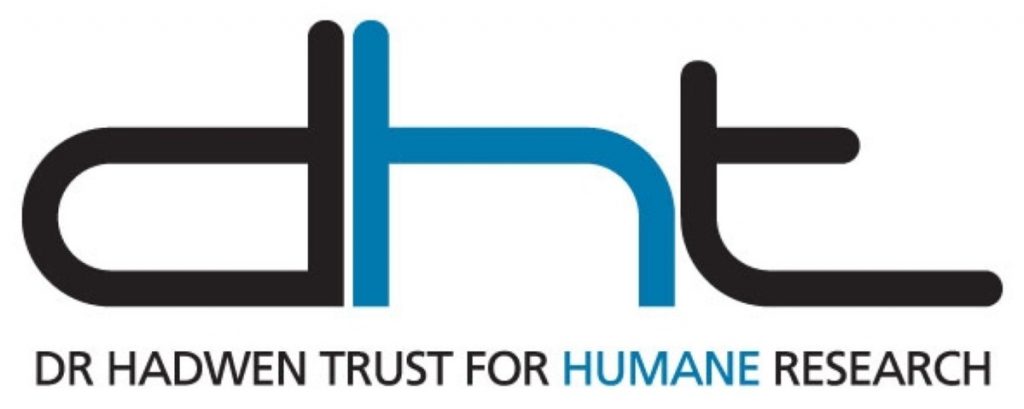Dr Hadwen Trust: Off-the-shelf mutant mice – unethical and unreliable
Off-the-shelf mutant mice for use in laboratory experiments are being declared ‘the next big thing’ in genetics research by the International Mouse Knockout Consortium (IMKC). In Nature, the IMKC has hailed its ability to mutate every gene in the mouse genome as a victory for human medicine(1) but ethical researchers the Dr Hadwen Trust, warn that the production of knockout mice causes animal suffering, is time consuming, costly and has low efficiency.
The IMKC aims to produce an “off-the-shelf mutant mouse” for any researcher who cares to ask for one, in the hope of using the mice as ‘models’ to study human illnesses varying from cystic fibrosis to heart disease and more. However, the Dr Hadwen Trust, the UK’s leading non-animal medical research charity, has criticised the mouse gene mutation experiments and called for an end to ‘off-the-shelf’ laboratory animals on welfare grounds.
The charity says that in addition to causing animal suffering, such experiments are severely compromised by significant species differences between mice and humans in anatomy, physiology, biochemistry and genetics. Researchers are consistently finding that their ‘mouse models’ don’t translate to human illnesses and where mutated mice have been used in the past, progress could have been delayed in finding treatments for serious illnesses.
Only recently, researchers from the US and Canada studying heart disease found that, although their gene-mutated mice(2) showed an improvement in heart function, human patients with a mutation in the equivalent gene show such severely reduced heart function that two patients with the mutation required a heart transplant before they reached the age of 30yrs (3).
In cystic fibrosis (CF) research, mouse ‘models’ have delayed research and could have held up the search for a treatment for the disease. Mice with mutations in the equivalent gene that is at fault in CF patients are being used to study the condition, but often do not suffer from any lung disease, which is fatal in 95% of human patients. A further problem is that the gene is being studied against the background of other mouse genes and not other human genes and this affects the relevance of the results to patients (4).
Says Nicky Gordon, Dr Hadwen Trust Science Officer:
“Off-the-shelf mutant mice are not the answer for improving the quality of our medical research. Mutant mice have been used for decades to study cystic fibrosis, yet this research is bringing us no closer to a cure. In heart disease research mutant mice have proved to be irrelevant to the human condition. There are such wide-ranging physiological differences between mice and humans that mouse ‘models’ just don’t represent human patients effectively, and mutating their genes doesn’t remedy that situation, in fact it often leads to further complications.”
The Dr Hadwen Trust would like to see an end to such gene experiments in animals, and instead promotes the adoption of cutting-edge techniques that can be applied to human cells in the test tube to study the roles of genes in disease.
Nicky Gordon says:
“Mutating mouse genes may sound futuristic, but it doesn’t represent the cutting-edge of gene research. Human-based techniques like gene silencing and other targeted gene modifications of human cells in vitro are being developed to research illnesses like multiple sclerosis. Gene studies of human patients are also a more relevant and humane alternative to the use of mice. In human medicine, our focus needs to be on human genes not animals.”
The Dr Hadwen Trust is at the forefront in encouraging further development of these humane and relevant research methods, which will save animals and benefit patients.
Notes to Editor
Nature 446, 469-470, 29 March 2007. The IMKC consortium launched earlier in March and comprises organisations from around the globe including EUCOMM, an EU consortium of eleven laboratories such as GSF(German National Research Center for Environment and Health) in Munich, Germany and the Sanger Institute in Hinxton, UK.
Mice with a mutation in a gene coding for a protein (called phospholamban) which plays an important role in cardiac health.
Haghighi, K. et al (2003) Human phospholamban null results in lethal dilated cardiomyopathy revealing a critical difference between mouse and human. The Journal of Clinical Investigation, 111: 869-876
Barinaga, M (1992) Knockout mice offer first animal model for CF, Science, 257: 1046-47





-01.png)